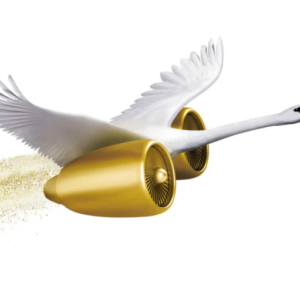Meetings, conference calls and a flood of e-mails of epic proportions in the inbox - optimally all checked off the to-do list before 10 am. Up to now, our actions have been driven by the belief that the only way to counter the shortage of time and the stress of everyday life is to become even more efficient. But slowly more and more companies are recognizing the importance of deceleration and active downtime.
A search for the causes of this profound change in trend reveals a phenomenon known as "work-life blending," i.e., the dissolution of the traditional separation between work and leisure. Constant accessibility, permanent stress, quickly checking emails before dinner - all these things have made the desire for calm and focus grow within us.
In the meantime, several well-known companies have already reacted to this with different approaches. Daimler-Benz, for example, offers its employees business yoga to help them find clarity and orientation. Google designed its own program, which was aimed at increasing the
well-being of the employees. Reichl und Partner already considered a spacious creative lounge and relaxation islands as places of retreat between the office spaces when planning the new agency building in Linz. And the consumer goods industry has also long since jumped on the bandwagon, launching so-called anti-energy drinks that promise deep relaxation for stressed minds.
This new "slowness of being" is finding its way into more and more areas of life. She started in Slow Food and has now arrived in Slow Business. A trend that is increasingly being promoted by companies for whom one thing has become clear: rest periods are imperative in order to gather strength and be able to perform to the maximum when it counts.
Source & more on the topic:

Agency brief introduction
Since its founding in 1988, the REICHLUNDPARTNER agency group has evolved into one of Austria’s leading communications agencies. With a comprehensive range of services and highly specialized, independently managed units, we offer innovative, holistic solutions across all areas of analog, digital, and social marketing communication.